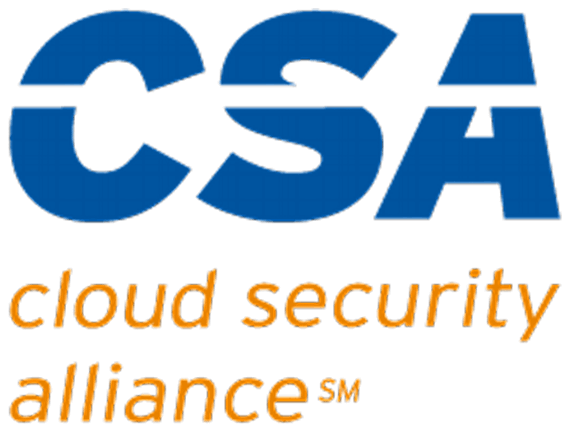For modern small businesses, flexibility and cost-efficiency are essential when building and maintaining IT infrastructure. As digital demands increase—from data storage and backup to remote access and application performance—businesses face growing pressure to modernize without overextending their budgets or creating unnecessary complexity. That’s where hybrid cloud solutions come in.
A hybrid cloud strategy combines on-premises infrastructure with public or private cloud services, offering the best of both worlds: the control and performance of local systems with the scalability and accessibility of the cloud. At Datacate, we help small business clients design and implement tailored hybrid cloud environments that support growth, enhance security, and improve operations—all without breaking the bank.
Let’s examine the advantages of hybrid cloud for small businesses, what it takes to implement this approach, and how Datacate delivers value by managing hybrid infrastructure from end to end.
Why Hybrid Cloud Makes Sense for Small Businesses
Small businesses face unique challenges that make a one-size-fits-all IT strategy impractical. Some workloads demand low-latency access or high security, which is best served by on-premises systems. Others—like cloud backup, collaboration tools, and remote access—benefit from the flexibility and geographic redundancy of cloud infrastructure.
Hybrid cloud provides a strategic middle ground. Instead of committing entirely to the cloud or maintaining an expensive all-on-premises stack, businesses can mix and match according to operational needs and budget.
Here are some key benefits:
1. Cost Control with Scalable Options
One of the top advantages of hybrid cloud is cost-effectiveness. Businesses can keep critical workloads and applications on-premises while moving less sensitive or resource-intensive functions (like backups or file sharing) to the cloud. This reduces capital expenditures for hardware while enabling “pay-as-you-grow” scalability in the cloud.
Example: A small accounting firm might run its client database and tax software on a secure local server, while using Microsoft 365 and SharePoint for email and document collaboration. If the firm adds remote employees during tax season, it can spin up cloud-based desktops or extend VPN access without overhauling infrastructure.
2. Improved Business Continuity and Disaster Recovery
Hybrid cloud environments improve resilience. Local infrastructure can handle day-to-day operations with minimal latency, while cloud services provide backup and disaster recovery options. In the event of hardware failure or a site outage, data and workloads can fail over to the cloud to keep the business running.
Example: A retail operation might use a local server for point-of-sale transactions and inventory but replicate that data to a cloud backup service. If the in-store server fails, cloud recovery ensures that inventory and sales data are not lost and can be restored quickly.
3. Flexibility to Support Remote Work
Hybrid cloud makes it easier to support flexible work arrangements. Businesses can store sensitive data locally while providing secure access to remote employees via cloud-hosted applications or virtual desktop infrastructure (VDI).
Example: A construction company may keep project data and proprietary software in its main office but provide remote field staff with secure access through a VPN or VDI platform. Employees can submit timecards, view schematics, or update schedules from anywhere.
4. Incremental Modernization
Many small businesses can’t afford to “rip and replace” legacy systems. Hybrid solutions allow for gradual cloud migration, letting companies modernize over time while maintaining continuity.
Example: A legal firm with an aging file server can start by moving client communication and scheduling to Microsoft 365, then plan a phased migration of legacy case files to SharePoint with Datacate’s assistance.
Cybersecurity in the Hybrid Cloud Model
With any mixed infrastructure, cybersecurity must be front and center. Hybrid cloud environments add complexity, creating opportunities for cyber threats if not properly secured. However, when managed effectively, a hybrid model can enhance security posture.
Key Cybersecurity Considerations:
- Identity and Access Management (IAM): A hybrid setup requires unified identity management. Tools like Microsoft Entra (Azure AD) allow centralized user access control across on-prem and cloud systems.
- Data Encryption: Data must be encrypted in transit and at rest across both environments.
- Endpoint Protection: Devices accessing cloud or local systems must have up-to-date antivirus, antimalware, and firewall policies.
- Network Segmentation: Separating systems by function and access level reduces risk exposure.
- Backup and Recovery Validation: Backup systems must be regularly tested for restoration capability and ransomware resilience.
At Datacate, we build hybrid environments with layered security strategies. Our managed services include endpoint protection, firewall and VPN configuration, user access auditing, and continuous monitoring to ensure no weak links go unnoticed.
What It Takes to Succeed with Hybrid Cloud
Implementing hybrid cloud requires more than just plugging in a few services. It demands strategic planning, expert configuration, and ongoing management. Here’s what’s involved:
1. Infrastructure Design and Planning
This involves mapping out what stays local, what moves to the cloud, and how the two environments will communicate securely. It requires consideration of bandwidth, latency, licensing, compliance, and future growth.
2. Platform Integration
Hybrid setups must integrate multiple platforms—Windows servers, cloud storage, collaboration tools, SaaS applications, and more. Proper configuration avoids data silos and sync issues.
3. Security Configuration
Every integration point must be secured, from VPN tunnels to identity federation. Firewalls, encryption, MFA, and regular patching are essential.
4. User Training and Support
Employees must understand how to access systems, use cloud tools securely, and follow IT policies. A managed IT partner like Datacate provides user onboarding, training, and responsive helpdesk support.
5. Monitoring and Optimization
Hybrid environments need constant monitoring to identify performance bottlenecks, unauthorized access, or outdated systems. Datacate uses advanced monitoring tools to keep systems optimized and secure 24/7.
Why Partner with Datacate for Your Hybrid Cloud Implementation
Hybrid cloud isn’t a plug-and-play solution—it’s a tailored strategy. At Datacate, we specialize in helping small businesses get the most from their technology investments by designing and managing secure, scalable, and sustainable hybrid environments.
Here’s how we help:
- Custom Solution Design: We assess your existing infrastructure, business needs, and growth plans to build a hybrid architecture that fits.
- Migration and Integration: We handle every step, whether you’re moving to Microsoft 365, setting up a cloud backup plan, or linking your office systems with cloud tools.
- Security-First Approach: We build cybersecurity into every layer of the solution—from access controls to advanced monitoring.
- Ongoing Support and Management: Our California-based team of engineers and support staff is available 24/7 to handle issues, updates, and user support.
- Cost-Effective MSP Plans: You get a full team of experts for less than the cost of hiring a single in-house technician.
Hybrid cloud isn’t just for big enterprises—it’s a smart move for small businesses looking to stay agile, secure, and competitive. With Datacate as your IT partner, you can confidently move forward, knowing that your technology is working for your success.
Ready to explore hybrid cloud for your business? Contact Datacate today to schedule a consultation. We’ll help you design a hybrid cloud strategy that fits your budget, supports your goals, and prepares your business for what’s next.




